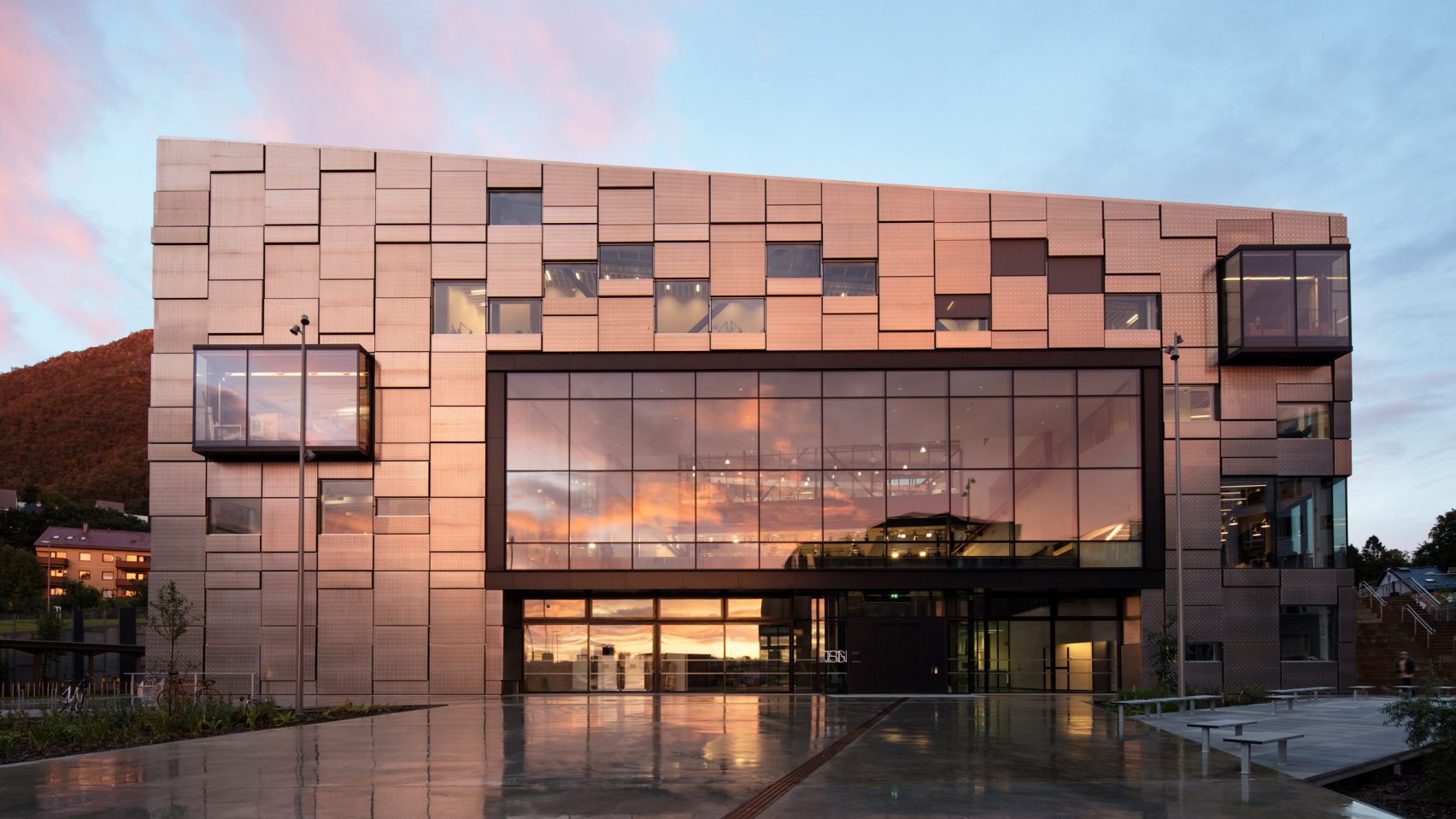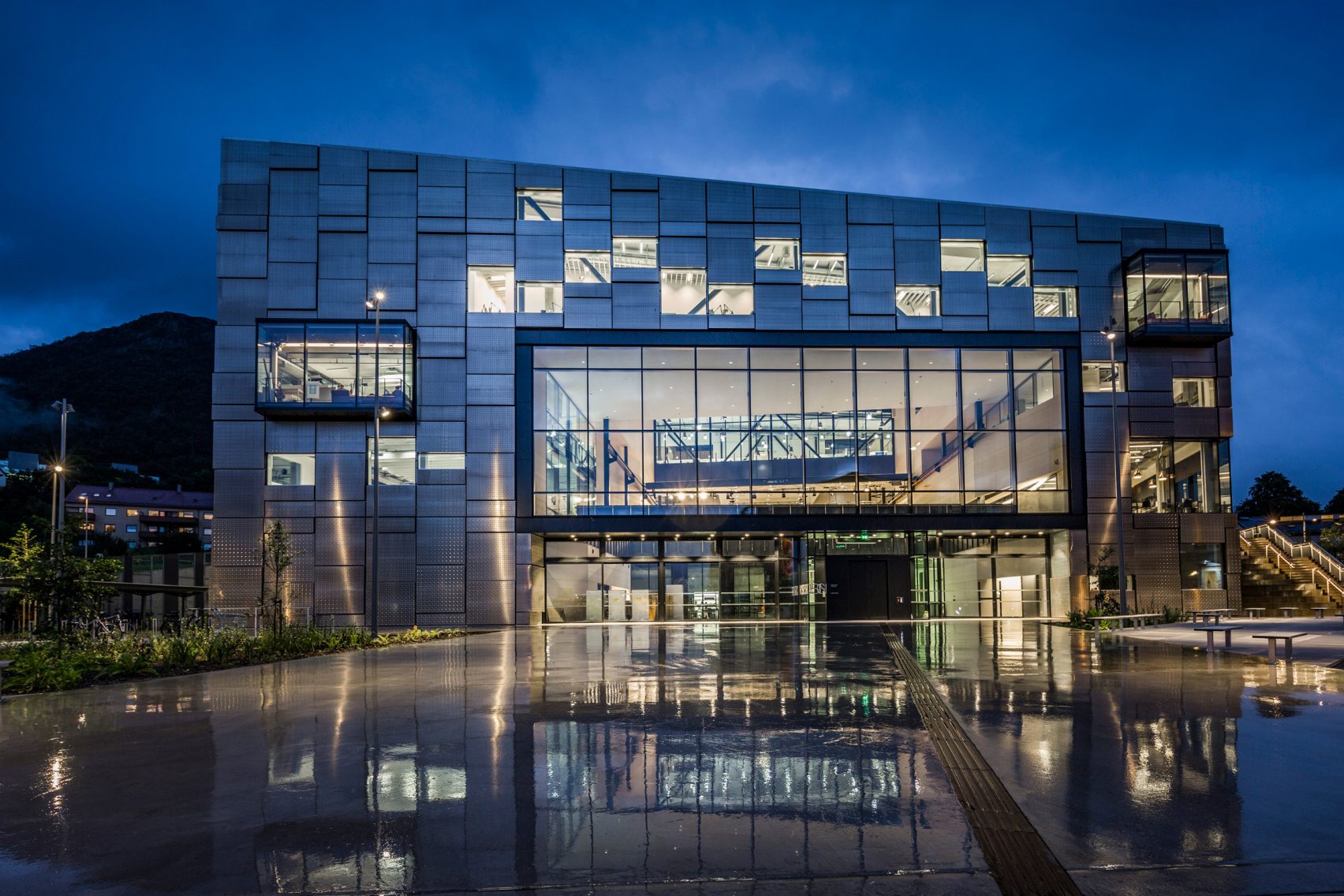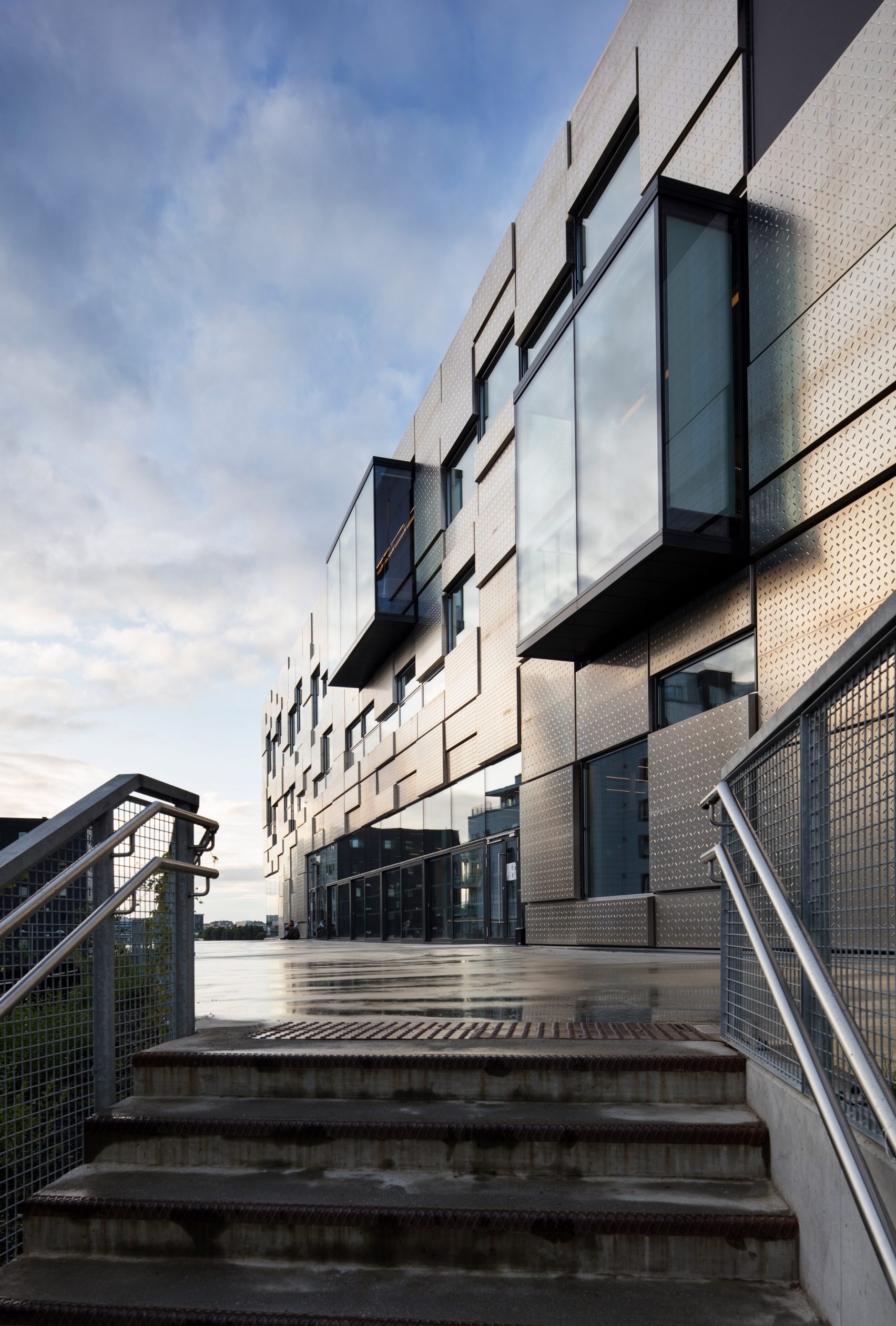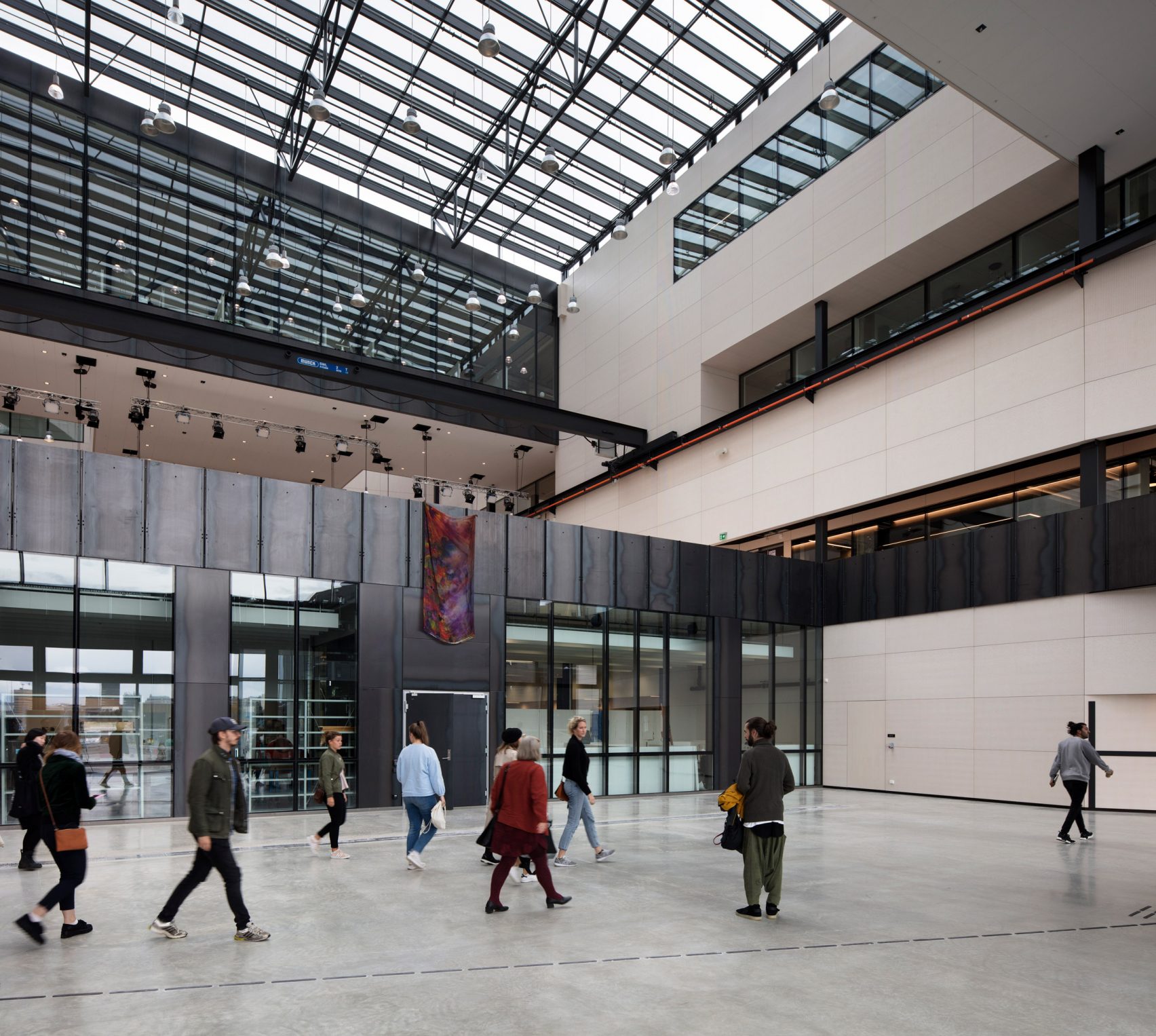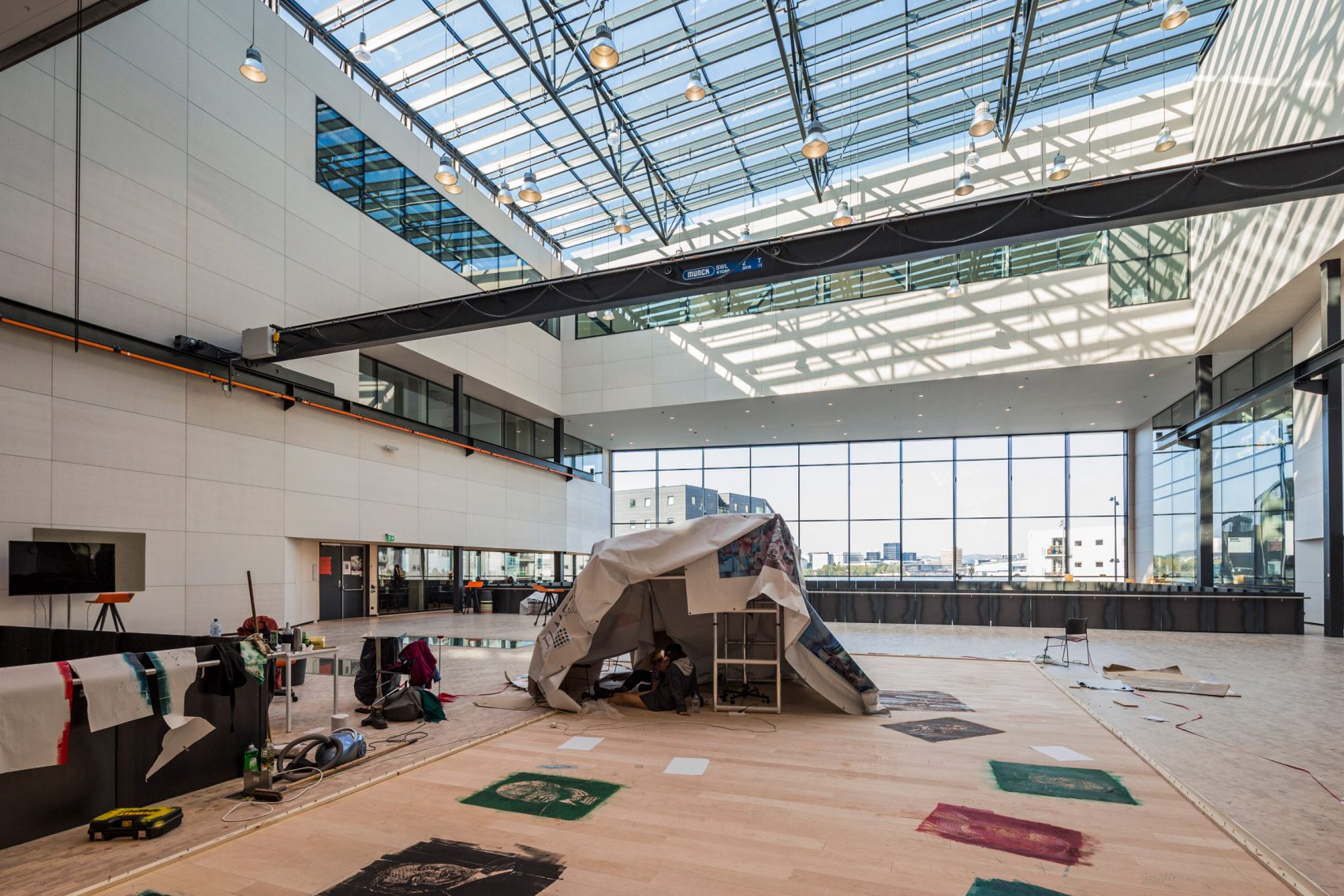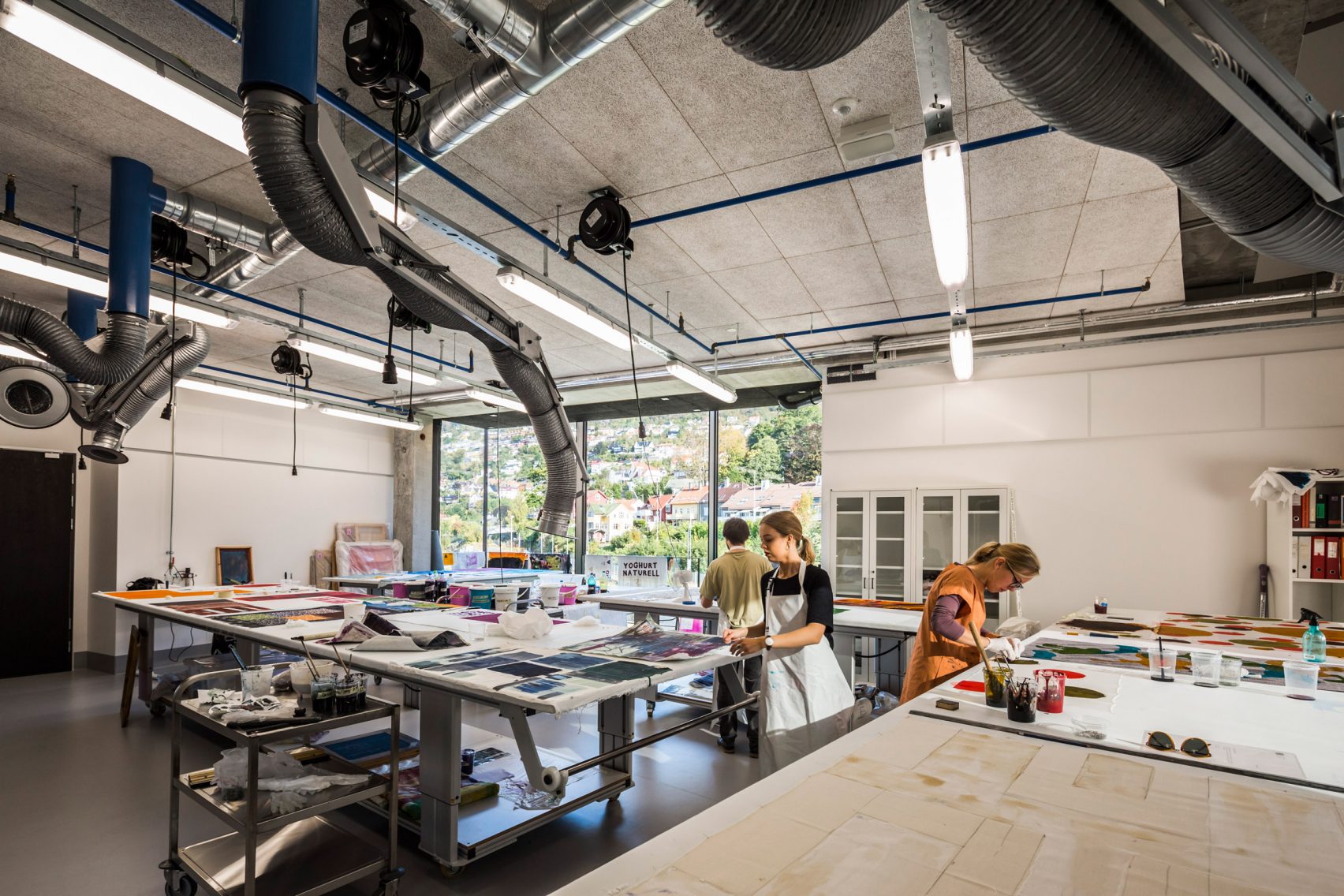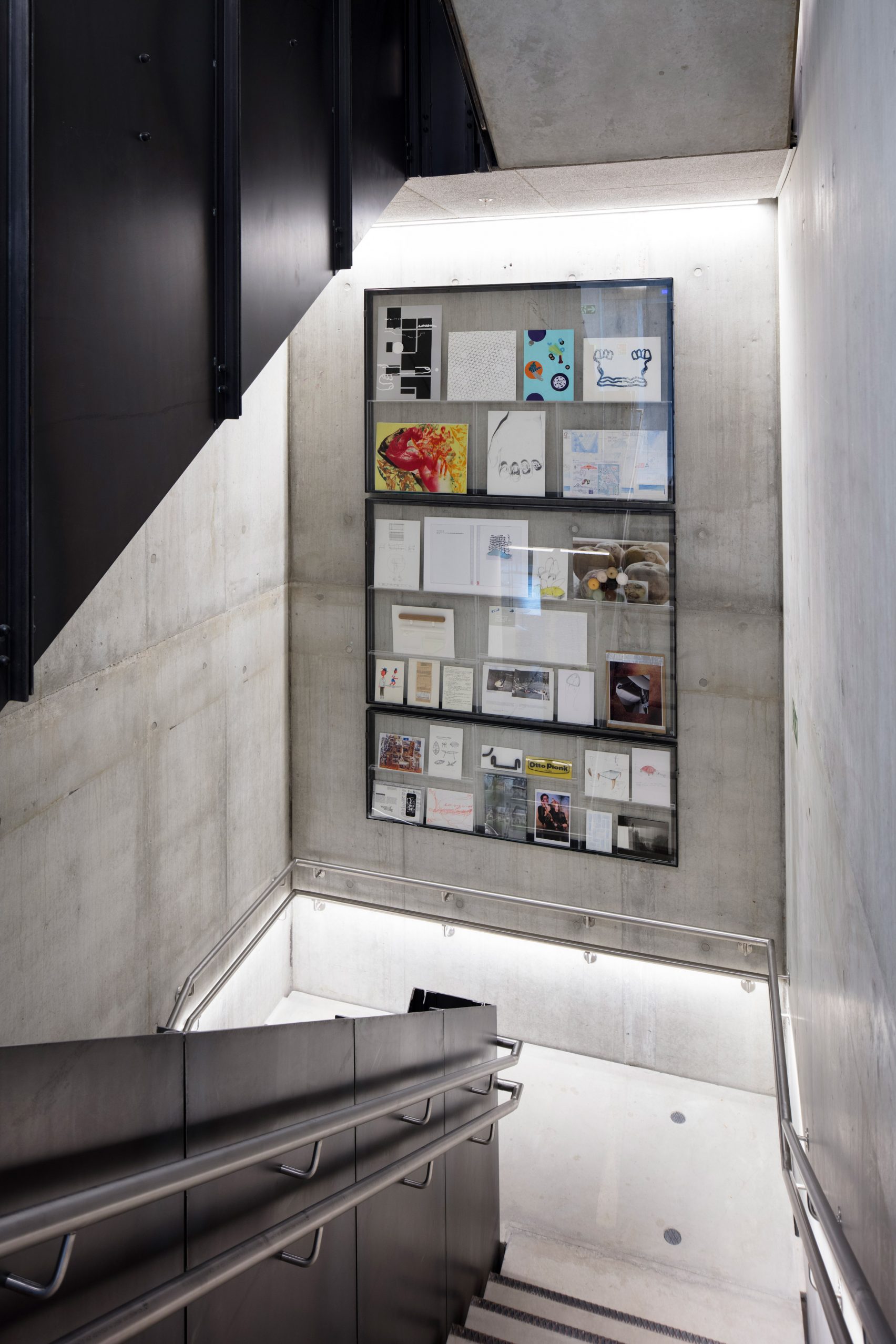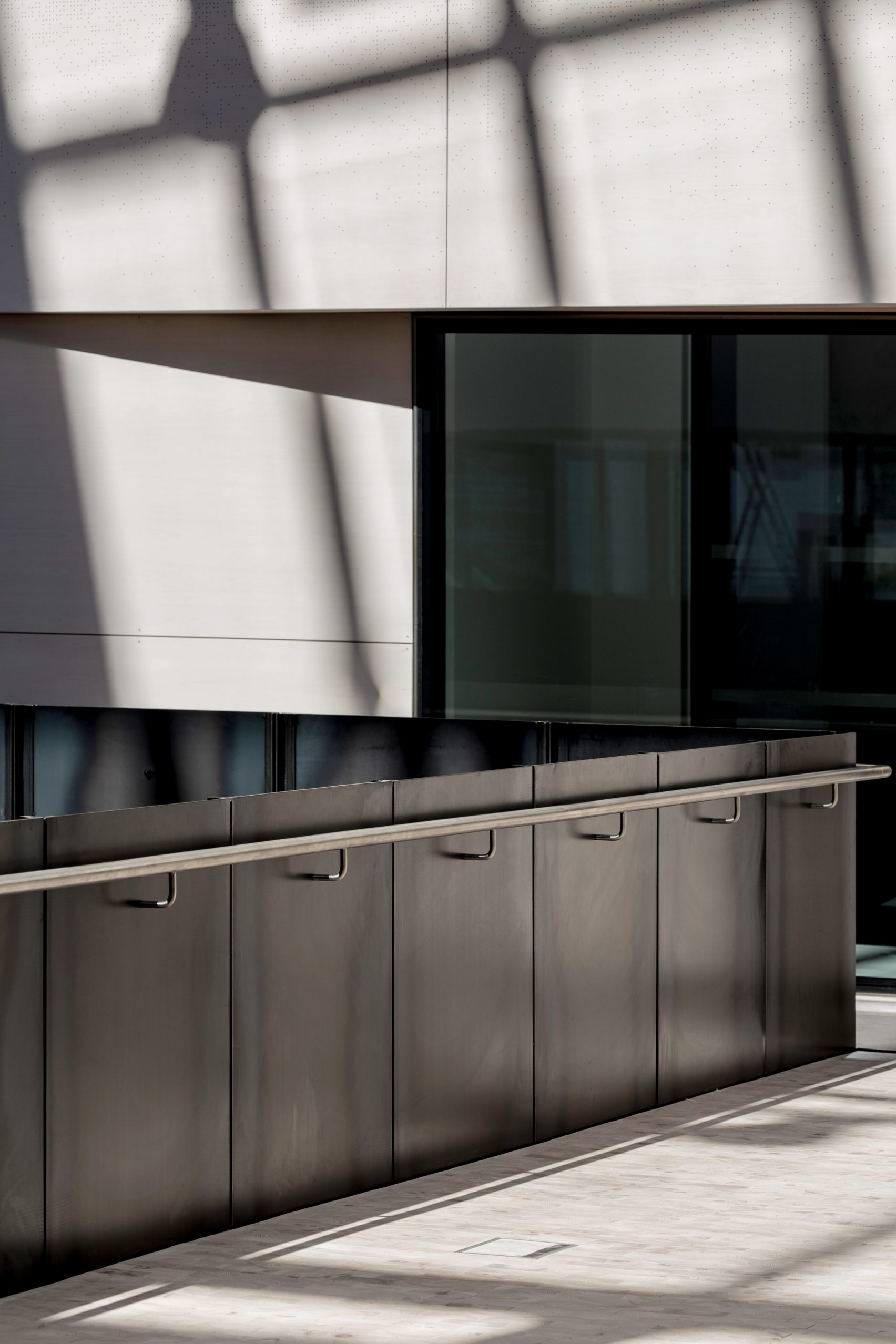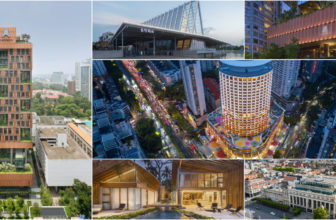Snohetta has completed a new building for the Faculty of Fine Art, Music, and Design of Bergen University in Norway. The students are free to use the unfinished interior walls of the building as a canvas for their artwork.
Twelve years after winning a competition to design the building in 2005, the Norwegian architectural firm has finally completed its construction this year. Each student was given a cubicle/studio to use according to their preference. The students were creative to the extent that one of them put a piano in a vacant shower stall.
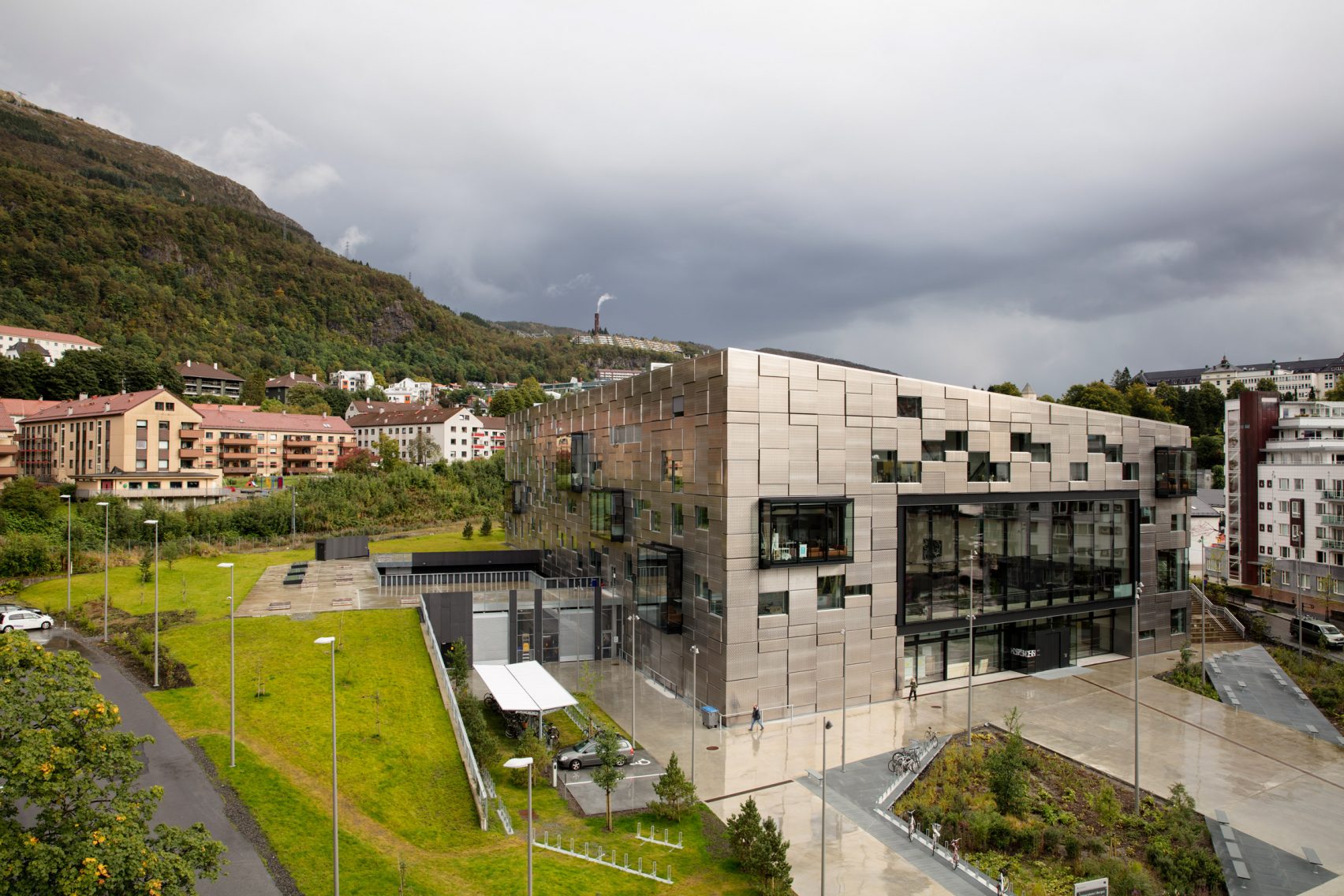
Courtesy of Snohetta, Photography by Tomasz Majewski
“Before architecture is used it is just a monument,” Kjetil Trædal Thorsen, co-founder of the architectural firm commented. “It needs people to become a tool.”
The metal façade of the building reflects the light during the day and changes appearance according to the weather. There are. also, glass boxes protrude from the façade and function as a display area for the artwork made by the students.
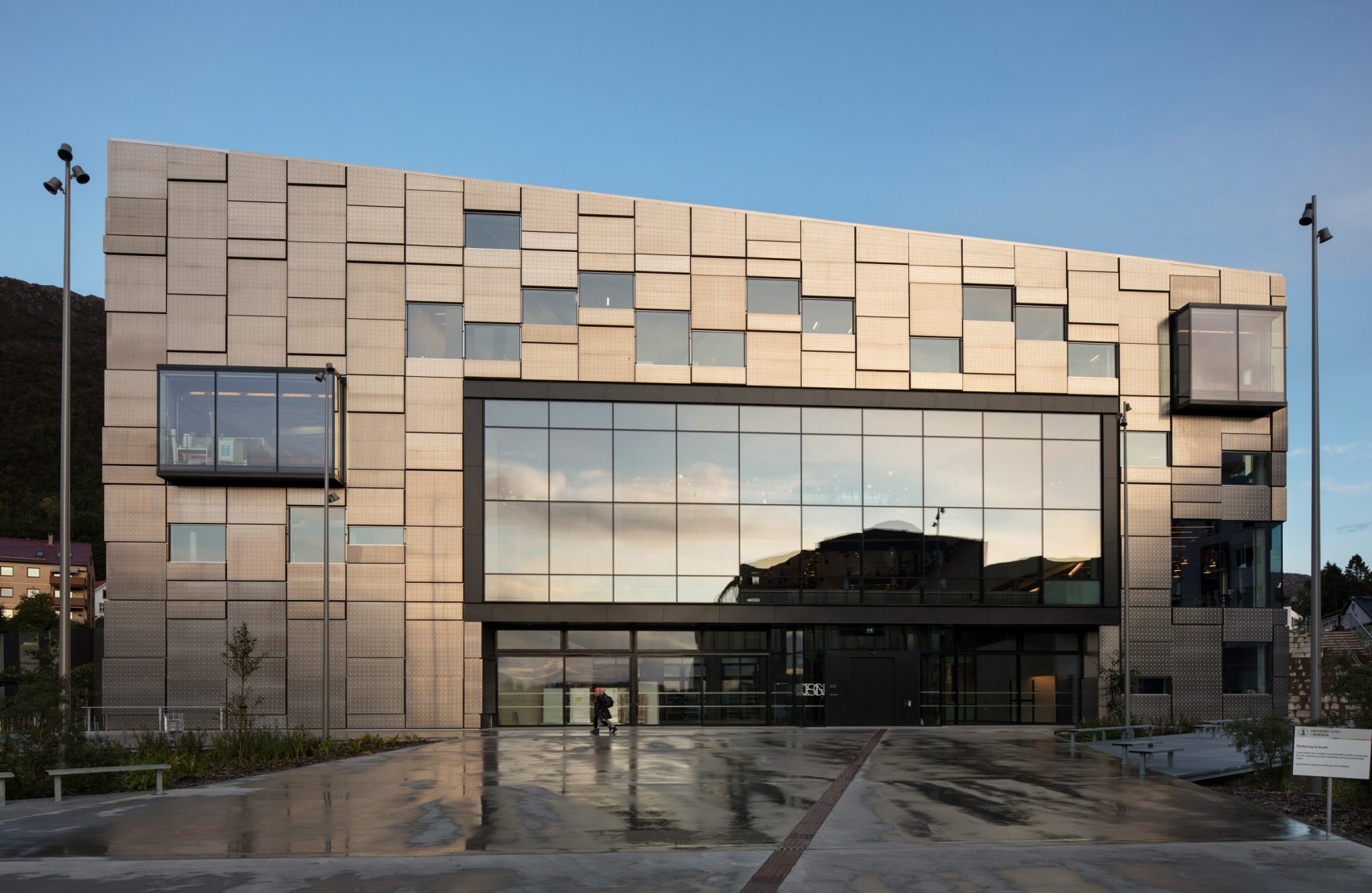
Courtesy of Snohetta, Photography by Tomasz Majewski
The hall, assigned for projects, was placed on the first floor at the core of the building. Furthermore, the project was designed in compliance with PassivHaus standards which means that the hall would control its own climate that ranges between 15-25 degrees.
“There are no surfaces, only materiality,” Thorsen explained. “And the materiality has to work!”
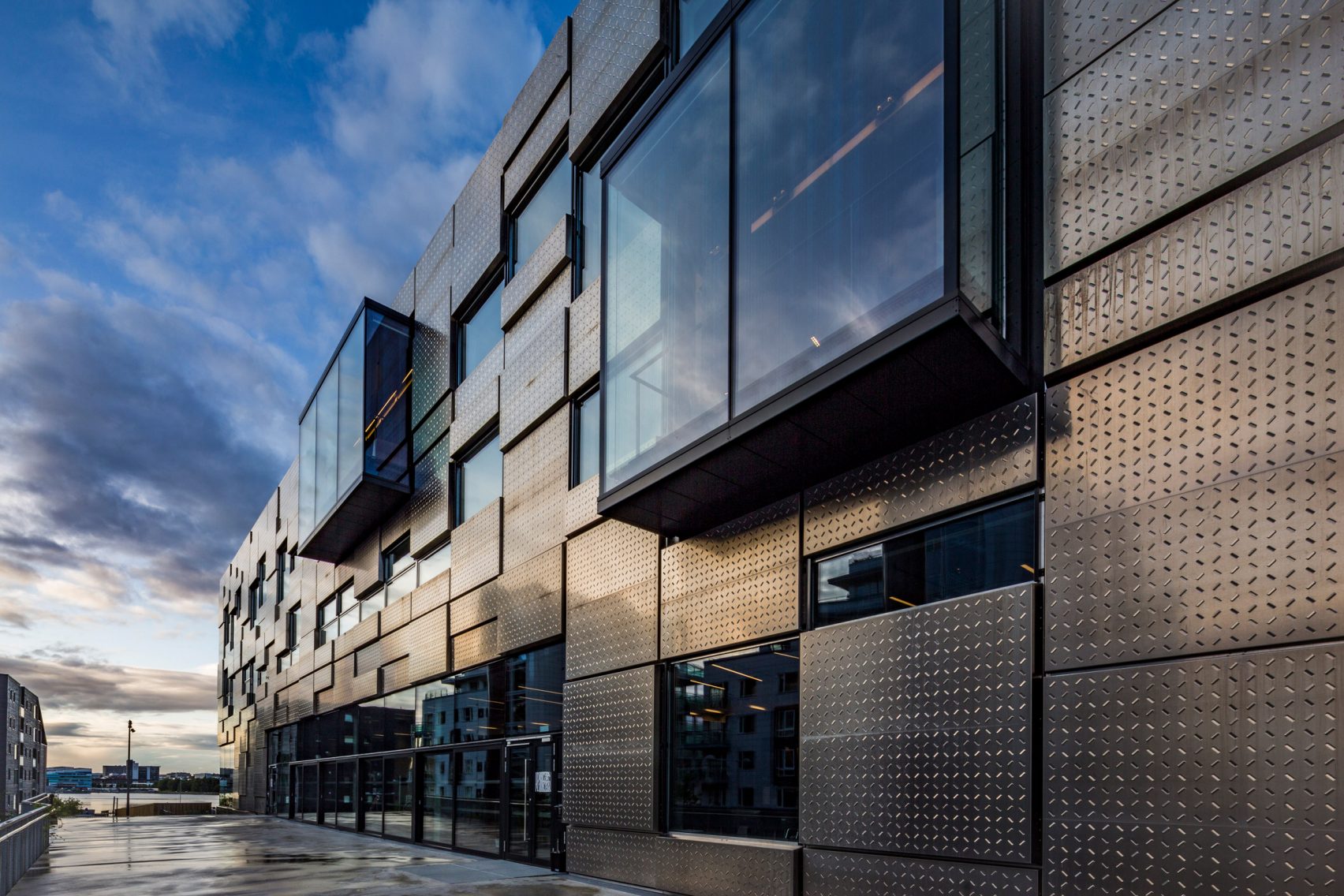
Courtesy of Snohetta, Photography by Tomasz Majewski
The building includes 3D printers and other equipment of the latest technologies. Foldable electrical cords hang from the ceiling so that the students can use their equipment everywhere in the building. The KMD’s location now is what was once a Munck factory for cranes. One crane was even conserved inside the building, hovering above the hall of projects to lift heavy stuff when needed.
The main stairway serves as a gallery which will be used by the college to hang sketches by students who have already graduated.
Anne Helen Mydland, vice-dean of KMD commented that it is a “challenge” to keep the interaction going between the students and the graduates.
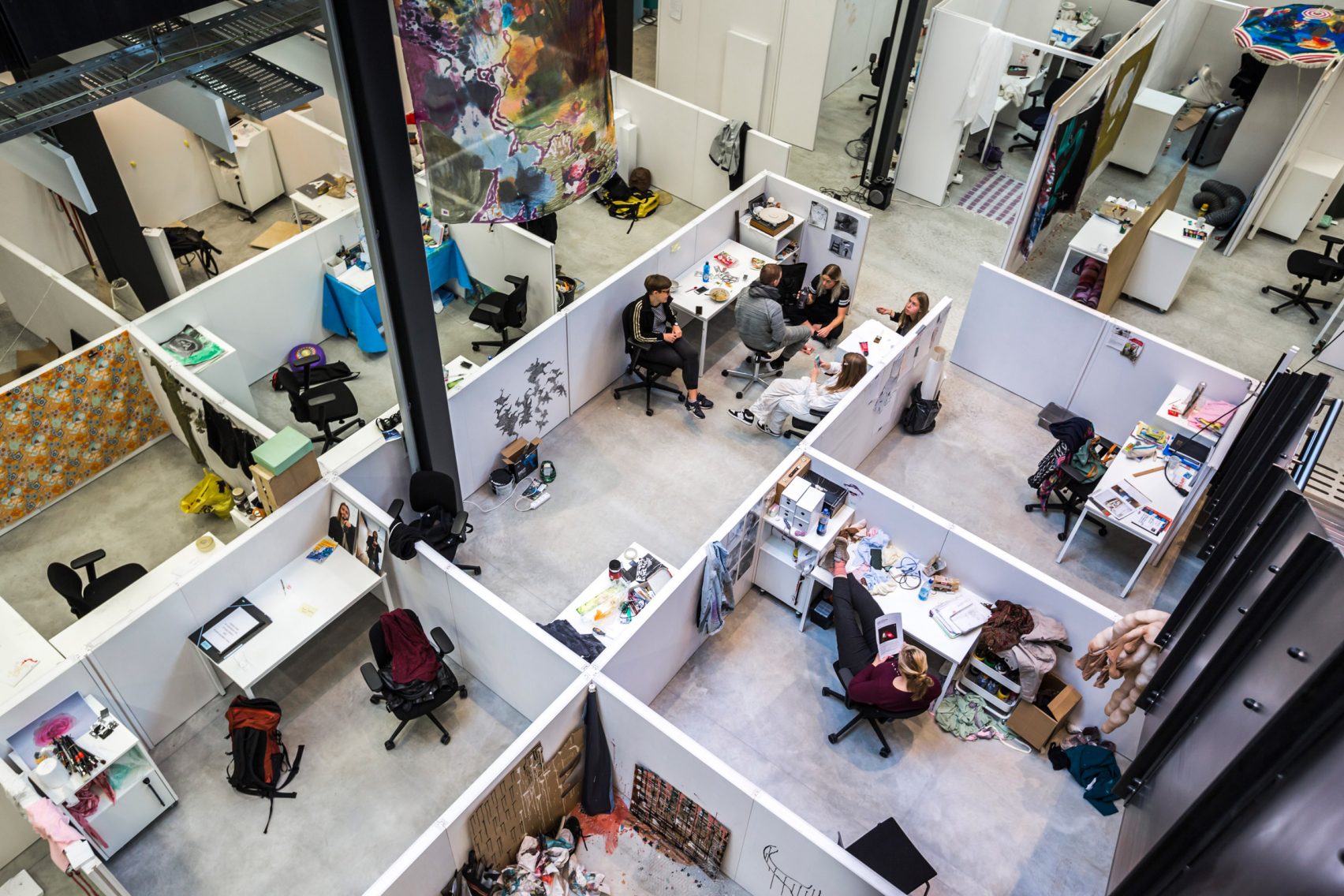
Courtesy of Snohetta, Photography by Tomasz Majewski
In 1996, KMD was established after uniting two art schools in the city of Bergen. The university encourages students not to abide by sharply-defined art subjects, but rather explore hybrid programs of studies and activities. Such a principle is evident in the school’s logo which disintegrates different words into one symbol.
Although the building has been finished, the interior elements could undergo remodeling in the coming years, when the college sees fit.
“We’re preparing for the unknown,” added Thorsen.
The project was completely funded by the government and nearly cost £105 million. Each student, even the ones who come from abroad, only pays £80 as fees of registration/term.

